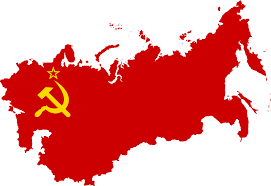 There’s a lot of nonsense around this question. I’ve written about the problems with command style economics and their contribution to the USSR’s fall, and I even mostly believe it.
There’s a lot of nonsense around this question. I’ve written about the problems with command style economics and their contribution to the USSR’s fall, and I even mostly believe it.
But none of that is necessary. A sociologist by the name of Randall Collins, for example, predicted the USSR’s loss in advance with only two metrics:
- The USSR controlled less people and resources;
- The USSR had a central position, where the US had a corner position.
If two countries are opponents and one is larger and has a better strategic position, who’s going to win?
This isn’t rocket surgery, and it doesn’t require lots of running around and squealing about superior systems.
The USSR was surrounded by near enemies. The US had an ocean between it and its enemies.
The US, combined with its allies and subject nations (the distinction is blurred to anyone with sense who notices how many US troops were stationed in “allied” territory) had more population and resources than Russia combined with is allies and subject nations.
Who was going to win this?
Note also that as a result, standard guns and butter economics come into play: the USSR, to remain militarily competitive, had to use more of its resources on its military, leaving less available for its civilian economy. Thus the economy wound up growing slower in the long term.
Then Reagan’s administration, seeing the weakness, piled on military spending that USSR felt it had to match, made Afghanistan into a bleeding sore (a mistake we’ve paid for ever since) and bled the USSR dry.
People reach too far. They want to say “we are better people and our beliefs and system are clearly superior.”
But the simplest explanation is that the US/West started with a superior position and in the long run that position told.
In order for the USSR to win, in fact, their system needed to be clearly superior. It needed to be able to outgrow the West while spending more resources on the military and do so with less population and resources.
There was a time that the orthodox view in the West was that it could do that. This is forgotten. In the early 50s, the USSR’s economy was still growing far faster than America’s and perfectly orthodox economics textbooks noted this.
Didn’t last. I think there’s a bunch of reasons for that, but this isn’t that essay, and in any case, again, all that subtlety isn’t needed. The USSR’s only real chance at winning was to get nukes to a deterrent level, then invade and pray it didn’t turn into a nuclear war. That is to say, in the late 50s.
Probably a good thing they didn’t do that.
The USSR lost because it had less resources and a worse position. Little more is needed.
The results of the work I do, like this article, are free, but food isn’t, so if you value my work, please DONATE or SUBSCRIBE.
